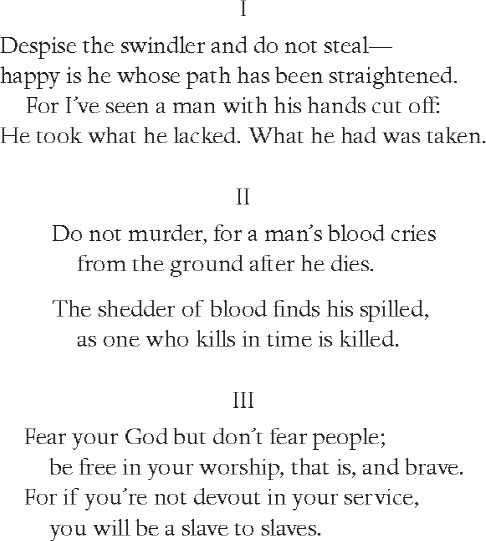MOSHE NATAN
(mid-fourteenth century)
When the Black Plague wreaked havoc through Spain in 1348, Jews were accused of having poisoned wells and of helping the epidemic spread. Popular uprisings against them further diminished Aragon’s Jewish communities. In Saragossa, for example, the combination of plague and pogrom destroyed four-fifths of the Jewish population. Elsewhere Jews had their houses demolished, were tortured and forced to confess to false charges, or worse. In 1354, Jewish notables gathered at a conference in Barcelona to address the situation and, it was hoped, reorganize Jewish life in Aragon.
One of the speakers at the Barcelona gathering, and among the four signatories to its concluding declaration, was MOSHE NATAN. A wealthy merchant and rabbi from Tarrega, he was in good standing at the royal court and was known for his philanthropy and learning. He was also a Hebrew poet and apparently composed at least some verse in Catalan as well. As a poet, his preferred form was the didactic or moral epigram, and his work—which was gathered in a collection called Totza’ot Hayyim (The Issues of Life)—in many ways resembles that of Yosef Qimhi in Sheqel HaQodesh (above). Though Qimhi’s proverbs are superior in every respect, Natan’s Hebrew is fluid, and the best of his work is characterized by its clarity and common sense. Given the state of Hebrew letters at the time, Totza’ot Hayyim represented a considerable achievement, and it was greeted as such by the poet’s contemporaries.

PRISON

From “THE TEN COMMANDMENTS”

CLOTHES MAKE THE MAN
